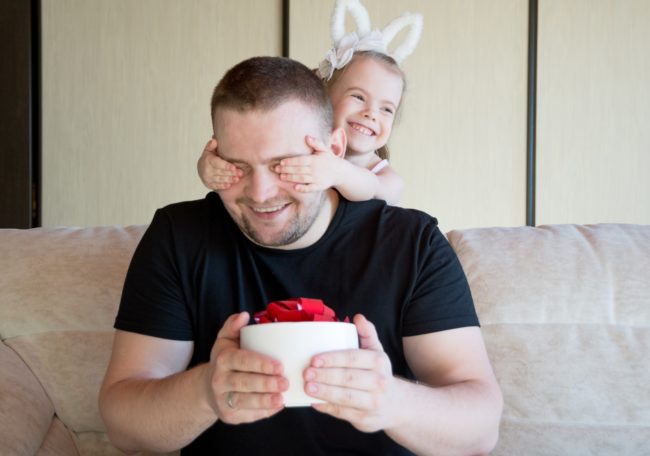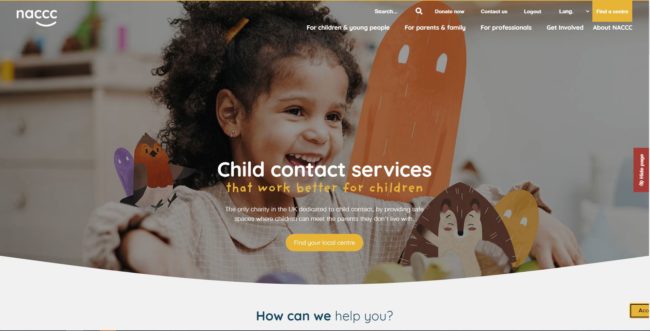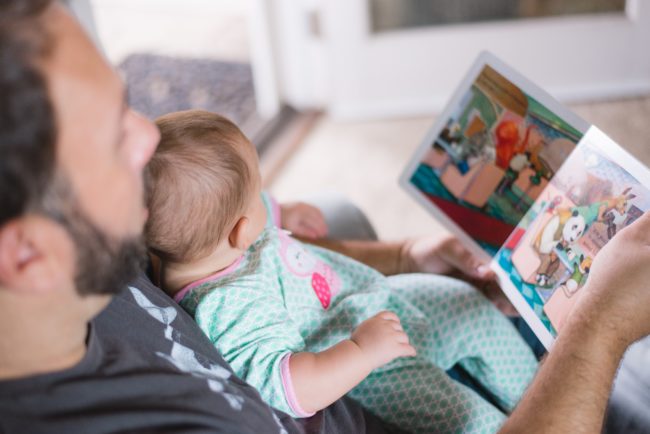Are you using a contact centre to see your children? You might be feeling a little daunted and wondering how do contact centres work? Read on to find out everything you need to know.

At Dad.info, we work with thousands of separating parents in our forum who want regular contact with their children. Having heard their stories, we believe that wherever it is safe to do so, children should continue relationships with both parents after separation or divorce. Things though aren’t always straightforward and sometimes a Contact Centre will be the first stop on that journey. We spoke with Phillip Coleman, Service Manager at the NACCC, The National Association of Child Contact Centres (NACCC) the only charity in the UK dedicated to child contact. Phillip shares his advice about how contact centres work below.

Heartbreak
It is heart breaking when parent separate, but this is just the beginning where children are involved. There are so many practical arrangements and seemingly insurmountable challenges when communication and trust with the other parent has broken down.
When parent separate the most urgent point that needs to be resolved is how, where and when the parent not living with the children will be able to spend time with their children.
It’s not fair
It can feel really unfair for the parent not living with their children. It feels like the entire system is against them. This point of view is not hard to appreciate. A parent can go from seeing their children every day, to not being trusted to see their child without supervision and seemingly the only thing to change is the ending of a relationship.
It’s about the children
What parents all to easily lose track of is often the thing that they both care about most in the world. Their children. Often once this perspective is regained it becomes easier to work together in order to meet the needs of their children and ultimately this is what the children need and deserve.
it is really easy to get distracted with our own pain during a separation. We can focus on one parent having things better than the other. If though, we try and keep focused on doing what’s best for the children many of these challenges can so easily be resolved, with a little compromise.
What role can contact centres play?

The truth is, we don’t want children and families to be using contact centres. We don’t think that contact centres are the best places for children, we would rather children be spending time with at the home of the other parent, in a restaurant or the park (where this is safe and appropriate).
How contact centres work is to help parents to build trust with one another. They provide a short-term steppingstone that helps parents to move on from their pain to act in a way that meets their children’s needs. Most contact centres would only expect to be working with the majority of families for a timescale of 3 – 6 months, before they move on to better arrangements.
What different types of contact are there?
There are a number of different types of contact, some of which we will outline here:
Supported contact
This is a form of contact where the level of risk is assessed to be lower than might be the case for supervised contact. It is also used as a way to progress from supervised contact.
In supported contact, direct observations are not made, and reports are not written. Staff or volunteers are trained and will be present to ensure the comfort of those engaging in the service.
It is quite normal for several families to share a space when having supported contact. Typically, this might be a sports hall. It might also be the case that there are more families than there are staff or volunteers.
These services are often free or charge nominal costs.
Supervised contact
The centre ensures the physical safety and emotional well-being of children in a one-to-one observed setting.
This form of contact is provided where it is assessed that there might be a higher risk or greater complexity in a family’s circumstance. These sessions will be supervised by staff who are experienced in this role.
Observations will be made, and reports will be written. It is generally expected that staff will remain within sight and sound of children at all times.
The reason for needing Supervised Contact will have some bearing on whether or not there is a cost.
- Sometimes Cafcass will cover the cost of some sessions, when directed by the court.
- If self-referring then parents might be asked to share the cost, or the cost might be covered by the parent not living with the children.
- Where social services have taken children into care, they will cover the costs associated with contact.
Supervised Centres are run by professionals and families will often have a space of their own meaning it is more expensive to offer this type of service.
Handover
The centre is used for a short period as a drop off / pick up point. Again, parents do not have to meet.
This is a service offered by some contact centres, in order to support a child moving from one parent to another. Contact will often take place away from a centre with no professional involvement.
Handovers can often be used as a way to progress from supported or supervised contact. Depending on your circumstances, it’s possible that a mutually trusted person could help with this.
Virtual Contact
This is a form of contact that takes place online, using video messaging software like Teams or Skype. Virtual contact can be either supervised or supported.
How can I prepare to make sure contact centres work for me and my children?
NACCC’s new website has areas specifically for children, parents and professionals that will walk you through how contact centres work. Complete with questions and answers that they get every day about child contact services. As well as a ‘Find a centre’ tool. The site also features a quick hide button, useful if you are interrupted while you are having a quick look.
Encourage your child or young person to use the NACCC website

Parental separation is an emotional time for young people. The emotions they experience are potentially life changing, and need to be recognised. Young people, struggling with separation are hearing all kind of messages about what a family looks like.
The new reality of your family life won’t fit neatly into traditional stories, but the NACCC have you covered with four stories about supported contact and supervised contact. Developed in consultation with the Family Justice Young People’s Board, the stories explore the emotions that children and young people could be feeling and how a child contact centre can help.
You can find them in both a story and comic book format depending on preference – Click through here
What next?
If you have more questions come and talk in our forum, all parents are welcome there to both give and hear advice from other families. Or see if your question is answered here in our FAQs about Contact Centres.








